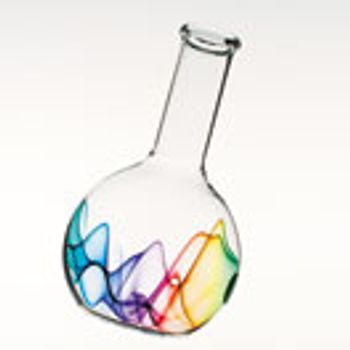
The company agreed to pay Forward Pharma $1.25 billion to settle a patent dispute over the formulation of Tecfidera, the company’s leading multiple sclerosis treatment.
Caroline Hroncich was associate editor for Pharmaceutical Technology, Pharmaceutical Technology Europe, and BioPharm International from 2015 to 2017.

The company agreed to pay Forward Pharma $1.25 billion to settle a patent dispute over the formulation of Tecfidera, the company’s leading multiple sclerosis treatment.

An FDA guidance on biosimilar naming garnered mixed responses from the Biosimilars Forum, the American College of Rheumatology, and Pfenex.

A study of 53 cancer drugs found that new treatments extended patient life an average of 3.43 months when compared with treatments available in 2003.

At the American Society of Hematology Annual Meeting, Novartis and Kite Pharma both released results from early-phase clinical trials with CAR-T therapies.

Scientists from the Fred Hutchinson Cancer Research Center have developed a semi-automated benchtop system for the manufacture of gene therapy.

A new study proposes a new way to potentially treat congenital diseases in utero.

Results from the Phase III POLLUX trial with Janssen’s Darzalex showed that the drug was effective at reducing disease progression in patients with relapsed or refractory multiple myeloma.

As the pressure to bring drugs to market more quickly increases, companies are faced with the challenge of selecting the most effective cold-chain storage solutions.

Researchers from the Wyss Institute explain a potential method for transporting and producing temperature-sensitive pharmaceuticals at a reduced cost.

The agency granted accelerated approval to Sarepta’s controversial DMD treatment, under the condition the company conduct additional studies to demonstrate efficacy.

Results of Phase III trials involving AbbVie’s blockbuster drug Humira (adalimumab) for the treatment of noninfectious uveitis were released on Sept 7, 2016. FDA approved the drug for noninfectious intermediate, posterior, and panuveitis in June 2016, bringing Humira’s list of approved US indications to 10.

Industry experts discuss best practices for selecting a separation technology.

In Phase Ib trials, Biogen’s aducanumab reduced amyloid-beta in the brains of patients with Alzheimer’s disease.

The debate over who has control over patents for CRISPR gene-editing technology came to a head on August 17, 2016 after an email was released from a former graduate student at the Broad Institute accusing Harvard-MIT of wrongfully securing patents to the technology.

Nine public health organizations submitted a letter to members of US House and Senate committees citing concerns with FDA’s decision to make changes to a section of the FDA and NIH Workforce Authorities Modernization Act.

A new study reveals a potential new approach to treat sickle cell disease and beta thalassemia using CRISPR-Cas9 gene-editing technology.

The mAb, in combination with lenalidomide and dexamethasone, or bortezomib and dexamethasone, was granted a Breakthrough Therapy Designation from FDA for the treatment of multiple myeloma.

The committee voted unanimously in favor of approving the drug, but the majority supported implementing additional risk management.

This new method uses inter-alpha inhibitors to promote attachment and long-term growth in stem cells.

Cancer cell lines could provide viable pathways to determining how tumors respond to specific anti-cancer drugs.

Biosimilar makers may have to wait an additional 180 days after receiving FDA approval before they can bring their drugs to market, according to a United States Federal Circuit Court ruling. On July 5, 2016 the court ruled in Amgen v. Apotex that after a biosimilar receives FDA approval, companies must notify reference product sponsors and wait 180 days before bringing the drug to market, a requirement in the Biologics Price Competition and Innovation Act.

In the wake of Britain’s decision to exit the EU, pharma companies face uncertainty.

Studying broadly neutralizing antibodies in infants may lead to new pathways in HIV vaccine development.

Keytruda was shown to be superior to chemotherapy in the treatment of patients with non-small cell lung cancer.

A study published in BMJ indicates that rheumatic patients with anti-infliximab antibodies may have a similar cross reaction to infliximab biosimilars.

In Phase III clinical trials, ixekizumab showed to be superior to etanercept and placebo in treating moderate-to-severe plaque psoriasis.

The agency reiterated its earlier decision to require suffixes in biosimilar naming, but was unclear on suffix meaning.

Genentech received accelerated approval for its immunotherapy atezolizumab for the treatment of bladder cancer.

The Phase I trials will examine AX-1602’s clinical efficacy for the treatment of psoriasis and eczema.

The updated guidelines detail best practices for conducting research with human embryonic stem cells.